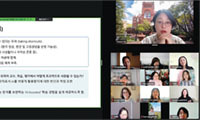The offending syllable is right in the titles of two of the songs, deployed as an imperative by Cee Lo Green and as an adverbial participle by Pink.
Mr. Green’s song was nominated for a Grammy Award, where its televised listing was coyly phrased “The Song Also Known as ‘Forget You.’ ” Pink’s song, a self-help power ballad assuring insecure people that they don’t have to be (emphatically) perfect, also has a cuss-free version. There’s an airplay-ready variant of Enrique Iglesias’s hardcore hit discreetly titled “Tonight (I’m Lovin’ You).”
But it’s the bluntness of his original chorus ? which is prefaced by Mr. Iglesias singing, “I don’t mean to be rude” ? that got the song noticed in the first place.
Of course he means to be rude! Pop songs fight to be noticed in an arms race of sentiments, gimmicks, sonic manipulation and promotional strategies. For Mr. Iglesias, trading pop’s usual affectionate euphemism for the bluntly physical verb couldn’t be more calculated; Mr. Iglesias decided that the crudity would turn on more fans than it would drive away.
It worked. Even if the original lyrics are off-limits to old media, it’s clear to everyone that the profane versions of the songs are going to be heard.
Forbidden in the United States by the Federal Communications Commission as broadcast indecency, the original songs gain a tiny frisson of rebellion for those who click through to the versions on YouTube or iTunes. The songs lead a double life: the broadcast version for the uninitiated or oblivious, the raunchy one for anyone paying attention.
Of course, cursing in public has become more the rule than the exception. Bono did it at the Grammys and the Golden Globes; Melissa Leo, an actress, did it at the Academy Awards. But Top 10 pop is a kind of last frontier. Visibility brings vulnerability. Moral guardians have long worried about pop’s effects on children . Regulatory agencies have backed them up.
Most would-be pop hits, which for decades have counted on radio , play by the rules, or pretend to. The restrictions have generated some creative workarounds, like Roger Daltrey’s stuttered “f-f-f-ade away” in the Who’s “My Generation.”
The Top 10’s current favorite word turns up beyond three songs. The folky English band Mumford & Sons gained its crucial commercial boost with the song “Little Lion Man,” a very direct apology for messing things up. Vampire Weekend’s “Oxford Comma,” about grammatical and other nitpicking, used the word almost nonchalantly.
But to make its impact, swearing needs scarcity. Mr. Green, Mr. Iglesias and Pink got their competitive advantage by making a relatively early breach of pop’s (thinly maintained ) decorum. But any kind of bandwagon effect is going to get boring fast, even if radio stations never play that scary word.
JON PARELES
ESSAY
스마터리빙
more [ 건강]
[ 건강]이제 혈관 건강도 챙기자!
[현대해운]우리 눈에 보이지 않기 때문에 혈관 건강을 챙기는 것은 결코 쉽지 않은데요. 여러분은 혈관 건강을 유지하기 위해 어떤 노력을 하시나요?
 [ 건강]
[ 건강]내 몸이 건강해지는 과일궁합
 [ 라이프]
[ 라이프]벌레야 물럿거라! 천연 해충제 만들기
 [ 건강]
[ 건강]혈압 낮추는데 좋은 식품
[현대해운]혈관 건강은 주로 노화가 진행되면서 지켜야 할 문제라고 인식되어 왔습니다. 최근 생활 패턴과 식생활의 변화로 혈관의 노화 진행이 빨라지고
사람·사람들
more많이 본 기사
- 중앙정치 실망한 美공화 하원의원들 내년 주지사 선거 출마 러시
- [2026전망] ‘집권 2년차’ 트럼프발 세계질서 재편 계속된다
- “베네수 마두로, 美 군사위협을 반체제 인사 탄압에 활용”
- “美 J1비자 ‘현대판 노예’ 사례 속출”…韓대학생 “정화조 청소만”
- 올해도 우울한 우크라 성탄…러 공격 지속에 종전 기대감도 저조
- 尹 내란재판 첫 구형 나온다…오늘 체포방해 혐의 결심공판
- 성탄절 캘리포니아 이틀째 악천후…최소 2명 사망
- 김정은, 올해는 대화 나오나…트럼프와 재회여부 주목
- 트럼프 얹은 케네디센터 개명 싫어 연례 성탄콘서트 취소
- “여객기서 빈대 물렸다” 美·유럽 항공사 상대 억대 손배소
- 박나래, 과거 또 파묘..이번엔 ‘나혼산’ 18L 식용유 장면
- BTS·블랙핑크 컴백에 부산 세계유산委…K-컬처 달린다
- 여성 살해·자녀 납치 한인 ‘수배’
- 2026년, 격동의 스포츠 캘린더…올림픽·월드컵·아시안게임 다 열린다
- 잘나가던 백종원, 논란에 흔들.. ‘흑백요리사2’ 복귀로 웃을까?
- “마가, 유럽에 첫 공격”…표현의 자유 둘러싼 전쟁 시작됐나
- 맘다니 뉴욕시장 취임위원회에 ‘파친코’ 이민진 작가
- “대학 학자금 상환 안하면 임금 압류한다”
- 한인타운 한복판 주유소서 강도 ‘칼부림’
- 남가주 전역에 ‘물폭탄’… 성탄 연휴 ‘대혼란’
- 러 “푸틴, 트럼프에 ‘메리 크리스마스’…젤렌스키는 야만적”
- 트럼프, 성탄절 어린이들과 통화… “나쁜 산타 막을게”
- 이스라엘군 “레바논서 이란 정예부대 군인 사살”
- 서태지, 딸·엘리와 1년 만에 근황 “좋은 소식 없어 안타까워”
- 쿠팡 유출 한달 만에 용의자 특정…동기·2차피해는 여전히 베일
- 체포 불체자 수만명 물류창고에 수감 추진
- 원·달러 환율, 당국 개입에 42원 폭락
- [2025년 한 해 ‘진 별’들] 미주 한인사회 원로들 ‘역사의 뒤안길’로
- ‘라스베가스에서 만난 한인들’
- [스티브 강 ‘인사이드 미국’] 2026 중간선거: 트럼프 지지율 하락이 말해주는 것
- 교황, 첫 성탄 메시지서 “우크라전 종전 직접 대화할 용기 찾길”
- 서유리, ♥법조계 남친 데이트 신청에 두근.. “돈은 내가 낸다”
- 최준희, 엄마 故최진실 생일 맞아 추억 “우리 마미 축하”
- 우크라, 성탄절에 드론·英미사일로 러 에너지시설 공격
- VA 페어팩스 카운티 실업자 급증
- 테슬라, “비상사태 시 차문 안 열려”
- “소변 불편한데 주저하다 방광 망가져”
- 한인 박찬영씨 총격살해범은 백인 군인...살해범 “박씨 차량이 끼어들어 시비가 붙어 결국 총쐈다”
- 북한인, 아마존 위장취업 대거 적발
- 크리스마스 연휴 음주운전 ‘꼼짝마’
- H-1B ‘10만 달러 수수료’ 연방법원, 이의소송 기각
- 중산층이 집을 사지 않는다?… 챗GPT가 내다본 주택시장 미래
- “음주운전 대신 15불 할인하는 리프트 타세요”
- SF기독대학교’동문의 밤’
- 새해 더 건강해지기 위한 의사의 과학적 조언 10가지
- 북가주목회자 사모회 총회
- LA 마약조직 집중 단속 갱단원 등 수백명 체포
- [송년 행사] LA 코리아타운 라이온스클럽
- [송년 행사] LA 북부한인회
- 난방기 뜯자 ‘비밀공간’ 은신 마피아 보스 체포
1/5지식톡

-
 미 육군 사관학교 West Poin…
0
미 육군 사관학교 West Poin…
0https://youtu.be/SxD8cEhNV6Q연락처:wpkapca@gmail.comJohn Choi: 714-716-6414West Point 합격증을 받으셨나요?미 육군사관학교 West Point 학부모 모…
-
 ☝️해외에서도 가능한 한국어 선생님…
0
☝️해외에서도 가능한 한국어 선생님…
0이 영상 하나면 충분합니다!♥️상담신청문의♥️☝️ 문의 폭주로 '선착순 상담'만 진행합니다.☎️ : 02-6213-9094✨카카오톡ID : @GOODEDU77 (@골뱅이 꼭 붙여주셔야합니다…
-
 테슬라 자동차 시트커버 장착
0
테슬라 자동차 시트커버 장착
0테슬라 시트커버, 사놓고 아직 못 씌우셨죠?장착이 생각보다 쉽지 않습니다.20년 경력 전문가에게 맡기세요 — 깔끔하고 딱 맞게 장착해드립니다!장착비용:앞좌석: $40뒷좌석: $60앞·뒷좌석 …
-
 식당용 부탄가스
0
식당용 부탄가스
0식당용 부탄가스 홀세일 합니다 로스앤젤레스 다운타운 픽업 가능 안녕 하세요?강아지 & 고양이 모든 애완동물 / 반려동물 식품 & 모든 애완동물/반려동물 관련 제품들 전문적으로 홀세일/취급하는 회사 입니다 100% …
-
 ACSL 국제 컴퓨터 과학 대회, …
0
ACSL 국제 컴퓨터 과학 대회, …
0웹사이트 : www.eduspot.co.kr 카카오톡 상담하기 : https://pf.kakao.com/_BEQWxb블로그 : https://blog.naver.com/eduspotmain안녕하세요, 에듀스팟입니다…
케이타운 1번가
오피니언
 스티브 강 전 한인민주당협회 회장
스티브 강 전 한인민주당협회 회장 [스티브 강 ‘인사이드 미국’] 2026 중간선거: 트럼프 지지율 하락이 말해주는 것
 김홍일 케이유니콘인베스트먼트 대표
김홍일 케이유니콘인베스트먼트 대표 [기고] 안정의 기준은 어떻게 제도가 되었나
 유혜미 한양대 경제금융대학 교수
유혜미 한양대 경제금융대학 교수 [유혜미 칼럼] 치솟는 환율, 경제 지표의 역설
 성민희 소설·수필가
성민희 소설·수필가 [윌셔에서] 우리 안의 ‘생각하는 사람’을 깨울 시간
 김정곤 / 서울경제 논설위원
김정곤 / 서울경제 논설위원 [만화경] 해수부 부산시대

[왈가 왈부] 내란재판부·정통망법 또 수정… 졸속·땜질 아닌가요
 정숙희 논설위원
정숙희 논설위원온라인쇼핑과 반품, 그리고 그 이후
 파리드 자카리아 / 워싱턴포스트 칼럼니스트 / CNN ‘GPS’ 호스트
파리드 자카리아 / 워싱턴포스트 칼럼니스트 / CNN ‘GPS’ 호스트 트럼프의 새 독트린 “미국을 다시 왜소하게”
 김동찬 시민참여센터 대표
김동찬 시민참여센터 대표 [미국은 지금] MAGA의 분열, 예견된 균열의 시작
1/3지사별 뉴스

“온 세상에 평화를⋯”
숨가쁘게 달려온 2025년을 이제 1주일 남짓 남긴 채 크리스마스 이브를 맞는다. 다사다난했던 한 해를 되돌아보며 마무리하는 연말 시즌과 크리…
H-1B비자 고임금·경력자에 우선권

“한반도 평화정착에 앞장선다”
민주평화통일자문회의 미주지역회의(부의장 이재수)는 22일 기자회견을 통해 내년도 활동 방향과 목표를 밝혔다. 이재수 부의장은 “미주지역회의는…
VA 페어팩스 카운티 실업자 급증

한인들 위한 무료 법률 상담회 개최
샌프란시스코 베이지역 한인회(회장 김한일)는 지난 20일 한인회관에서 북가주 지역 한인들을 위한 무료 법률 상담회를 개최했다. 이날 행사에는 …
여성 살해·자녀 납치 한인 ‘수배’

오늘 하루 이 창 열지 않음 닫기 





















































.png)


댓글 안에 당신의 성숙함도 담아 주세요.
'오늘의 한마디'는 기사에 대하여 자신의 생각을 말하고 남의 생각을 들으며 서로 다양한 의견을 나누는 공간입니다. 그러나 간혹 불건전한 내용을 올리시는 분들이 계셔서 건전한 인터넷문화 정착을 위해 아래와 같은 운영원칙을 적용합니다.
자체 모니터링을 통해 아래에 해당하는 내용이 포함된 댓글이 발견되면 예고없이 삭제 조치를 하겠습니다.
불건전한 댓글을 올리거나, 이름에 비속어 및 상대방의 불쾌감을 주는 단어를 사용, 유명인 또는 특정 일반인을 사칭하는 경우 이용에 대한 차단 제재를 받을 수 있습니다. 차단될 경우, 일주일간 댓글을 달수 없게 됩니다.
명예훼손, 개인정보 유출, 욕설 등 법률에 위반되는 댓글은 관계 법령에 의거 민형사상 처벌을 받을 수 있으니 이용에 주의를 부탁드립니다.
Close
x